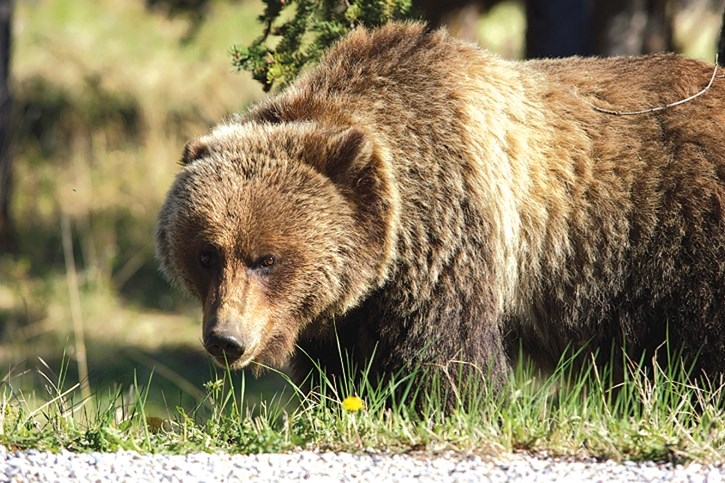BOW VALLEY - The province is hiring more seasonal staff to help educate and enforce rules such as keeping dogs on leash and people out of closed areas.
BOW VALLEY - The province is hiring more seasonal staff to help educate and enforce rules such as keeping dogs on leash and people out of closed areas.
Two new seasonal park rangers will patrol the Bow Valley, focusing on education and enforcement, while a new human-wildlife conflict technician will work in the Bow Valley-Ghost Reservoir area to help prevent and respond to human-wildlife conflicts.
The announcement of the new positions follows last week's release of a long-awaited report from the Bow Valley human-wildlife co-existence committee, which made 28 recommendations to keep wildlife and people safe.
The group's technical working group, however, concluded capital funding, increased staffing and contracted work is required if most of the 28 recommendations are to be implemented effectively.
Banff-Cochrane MLA Cameron Westhead, who was co-chair of the task force, said he's pleased there are three new seasonal positions, but added there's no money identified for additional staff in the following years at this point, although "it's possible."
"Generally, there's annual planning that happens in the ministry and that's already happened before this report occurred," said Westhead. "But in terms of longer term planning, they'll take this into account."
The group concluded an increase in the number of people and use in the Bow Valley, by joggers, mountain bikers and dog walkers, requires increased levels of enforcement and compliance if human-wildlife coexistence is to be achieved.
"Currently, compliance with regard to obeying human-wildlife based legislation such as wildlife attractants, dogs off-leash and entering officially closed areas is challenging," concluded the report.
"Efforts to enforce non-compliant behaviours and actions are limited due to insufficient resourcing and differences in legislation amongst jurisdictions."
Canmore Mayor John Borrowman, who is co-chair of the committee, said Alberta's fish and wildlife officers, as well as conservation officers, need support.
"It's a big area and there's an increasing number of humans recreating in wildlife corridors and habitat patches," he said.
The committee's technical working group recommends increasing legislation and increased staffing to beef up enforcement to better respond to people ignoring the rules, which could include non-traditional enforcement opportunities between various agencies.
"In addition, the government of Alberta currently lacks legislation which prohibits the feeding of dangerous wildlife," the committee indicated.
The group's 28 recommendations aim to address six key issues, including trans-boundary management, wildlife in developed areas, habitat security, food conditioning and habituation, people compliance and wildlife management.
The Bow Valley human-wildlife coexistence round table was created in late 2017.
It was the management of a particular female grizzly bear known as number 148 and her movements over the summer of 2017 that highlighted the challenges that wildlife face in a busy and developed valley managed by different agencies.
